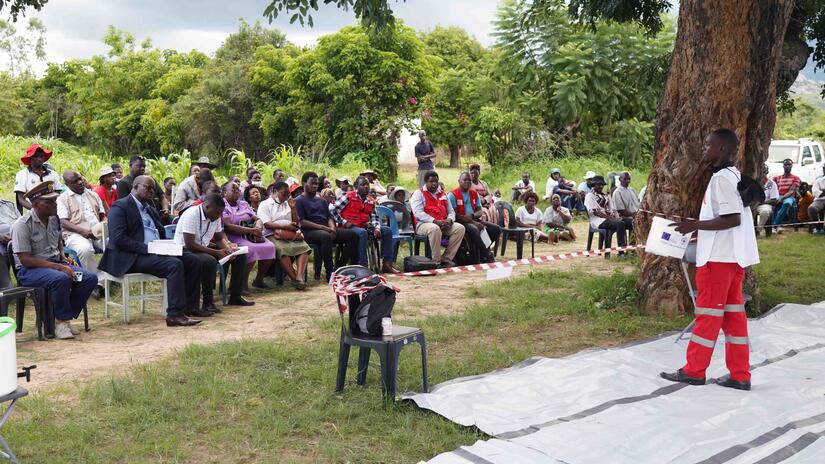Almost a year ago, the first patient with cholera in Zimbabwe was reported in the town of Chegutu, located about 100 kilometres southwest of the capital Harare. Throughout 2023, the numbers have only increased, as the disease spread to all the country’s ten provinces.
During the recent holiday period, there was an additional steep increase as people travelled and gathered to celebrate with their extended families, giving the disease new opportunities to spread.
“Our worst fears and predictions for the post-holiday season are confirmed with this upward trend of people contracting cholera," says John Roche, head of IFRC's Country Cluster Delegation for Zimbabwe, Zambia and Malawi. “This is especially worrisome for people with vulnerable health, who are the most affected and urgently need assistance.”
"With schools starting again and people going back to work, we must act quickly to reduce the numbers now. We have no time to lose; we need to break the cycle as every life in jeopardy is one too many.”
No time to lose
For this reason, speed is of the essence. Cholera spreads rapidly and easily. Simply drinking or eating something infected with the cholera bacteria can result in infection. This can lead to severe diarrhea and vomiting, sometimes so intense that people lose litres of water per day. The dehydration that followed can lead to death if measures are not put in place to rehydrate quickly.
In the capital city, many people live in close quarters and hygiene measures are poor, increasing the risk of becoming ill. With thousands of suspected cholera cases in the capital, Harare has declared a state of emergency.
Additionally, sewage and water infrastructure in many places in the country are in dilapidated condition requiring major rehabilitation. Sewage blockages are common, contributing to the rapid spread of the disease. Moreover, people struggle to access clean water for cooking and drinking.
Red Cross ready to help
Since the beginning of the outbreak, volunteers, and aid workers from the Zimbabwe Red Cross Society (ZRCS) have been taking action to combat the spread of cholera and provide care for patients.
Volunteers have been visiting communities to inform people on how to protect themselves and their loved ones, as well as what to do if they become ill. ZRCS has also been supporting the Ministry of Health in setting up Cholera treatment to allow individuals with symptoms of cholera access to appropriate care.
A total of nine Oral Rehydration Points (ORPs) have been set up throughout the country (in Harare, Mutare district, Masvingo district and Mashonaland). These locations were chosen based on the presence of trained volunteers conducting door-to-door cholera awareness sensitization.
A community feedback mechanism has been setup and there are currently community feedback meetings and suggestion boxes at numerous health facilities. So far, community outreach volunteers have connected and shared information with over 171,000 people.
To ensure that Red Cross teams can act promptly, the IFRC’s Disaster Response Emergency Fund (IFRC-DREF) allocated roughly 500,000 in June 2023 to support immediate response efforts. Unfortunately, cholera spreads rapidly, and ZRCS needs more funds to ensure that the number of infected individuals reaches zero.
For this reason, the IFRC and its members are urging people to support its emergency appeal seeking CHF 3 million to support the ZRCS reach 550,455 people with life-saving assistance and help to contain the outbreak. “This support is vitally needed to combat cholera and help ensure that no more lives are lost to this disease,” says IFRC’s Roche.





